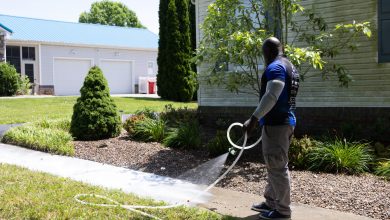Renovating a Rental Property in Malta: What Tenants Need to Know

Renovating a rental property can be an exciting prospect, offering the opportunity to personalize your living space and create a comfortable environment. However, when it comes to rental properties in Malta, there are specific considerations that tenants need to be aware of before embarking on any renovation projects. This article aims to guide tenants through the essentials of renovating a rental property in Malta while respecting the terms of the rental agreement.
Understanding the Rental Agreement
Before making any renovations, tenants should thoroughly review their rental agreement. Most rental agreements in Malta include clauses related to property alterations and modifications. These clauses are designed to protect both tenants and landlords, ensuring that any changes made to the property are within certain guidelines.
Common stipulations found in rental agreements include:
Permission Requirements: Many rental agreements require tenants to seek written permission from the landlord before making any alterations to the property. This includes both minor changes like painting and major renovations like installing new fixtures.
Restoration Obligations: Some rental agreements may specify that tenants are responsible for restoring the property to its original condition at the end of the tenancy. This might involve removing modifications and returning the property to its initial state.
Non-Structural Changes: Tenants are often allowed to make non-structural changes that don’t alter the property’s fundamental structure. These changes might include painting walls, hanging artwork, or adding removable fixtures.
Seeking Permission
If a tenant wishes to undertake renovations that go beyond the scope of what’s allowed in the rental agreement, it’s crucial to seek permission from the landlord. This permission should ideally be obtained in writing to avoid any misunderstandings later on. Landlords may want to assess the proposed changes and ensure that they comply with safety standards and local regulations.
Temporary Modifications
For tenants looking to personalize their living space without making permanent changes, temporary modifications can be a great solution. Temporary modifications include things like using removable wallpaper, adding adhesive hooks, or placing rugs and furniture to enhance the ambiance. These modifications can usually be removed or adjusted easily when the tenancy ends.
Property-Malta.biz/for-rent: Your Resource for Rental Listings
When searching for a rental property in Malta, tenants can take advantage of websites like property-malta.biz/for-rent. This platform offers a comprehensive range of rental listings, allowing tenants to filter properties based on their preferences and requirements. When considering a rental property, tenants can also inquire about the landlord’s stance on minor modifications to the property.
Communicate with the Landlord
Effective communication with the landlord is essential throughout the rental period, especially when considering renovations. Here are some tips for discussing renovation plans with your landlord:
Provide Details: Clearly explain your renovation plans to the landlord, including the scope of the project, the materials you intend to use, and the expected timeline.
Benefits: Highlight the benefits of the renovation to both yourself and the property. If the renovation could enhance the property’s value or appeal, the landlord might be more receptive.
Agreement Terms: If the landlord agrees to the renovation, ensure that the terms are documented in writing. This documentation should outline what changes are allowed and any conditions for restoration when the tenancy ends.
Working with Professionals
If you receive permission to renovate, it’s wise to work with qualified professionals for any major changes. Professionals can ensure that the work is done correctly and meets safety and quality standards. Additionally, retaining the services of professionals can prevent accidental damage to the property.
Respect Property Integrity
While personalizing your rental space is important, it’s equally crucial to respect the property’s integrity. Avoid making changes that might damage the property’s structure or alter its appearance in a way that could be challenging to reverse. Being considerate of the property’s long-term condition benefits both you and future tenants.
Restoring the Property
If you’ve received permission for renovations, remember that you’ll likely need to restore the property to its original state when the tenancy ends. This may involve removing fixtures, repainting walls, or repairing any modifications made during your stay. Properly restoring the property ensures a smooth transition for the landlord and the next tenant.





